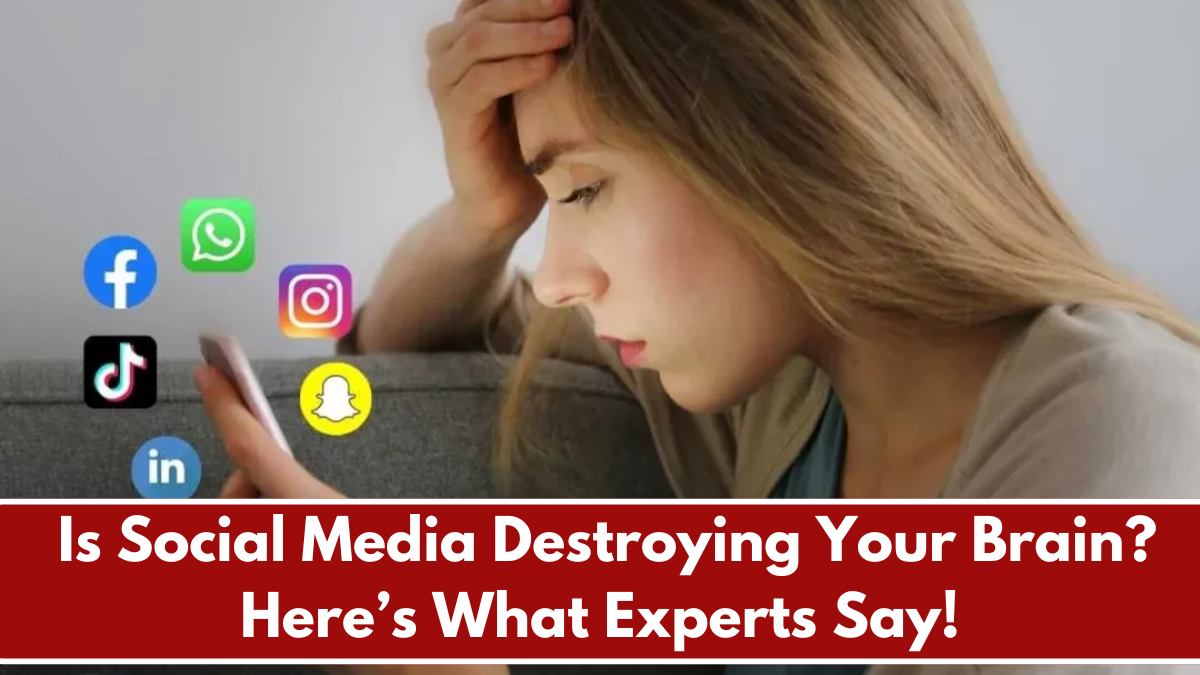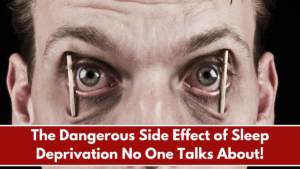In today’s digital world, social media has become an essential part of our daily lives. From Facebook and Instagram to TikTok and Twitter, billions of people spend hours scrolling, liking, sharing, and engaging with content. Social media keeps us connected, informed, and entertained, but is it doing more harm than good?
Recent studies suggest that excessive social media use may be rewiring our brains, affecting our mental health, attention span, and overall well-being. Many experts believe that constant exposure to social media can lead to addiction, anxiety, depression, and even cognitive decline. But how exactly does social media impact the brain? And what can you do to protect yourself while still enjoying the benefits of staying connected?
In this article, we’ll explore:
- The science behind social media’s effect on the brain
- How it influences mental health, focus, and memory
- Why social media is so addictive
- Expert insights on reducing the negative effects
Let’s take a deep dive into what researchers are saying about the hidden dangers of social media on your brain.
The Science Behind Social Media and the Brain
How Social Media Triggers the Brain’s Reward System
When you get a like, comment, or share on social media, your brain releases dopamine, the “feel-good” neurotransmitter associated with pleasure and reward. This is the same chemical released when people eat their favorite food, exercise, or even take addictive substances like drugs.
The problem? Social media platforms are designed to keep you engaged for as long as possible, constantly providing small hits of dopamine. This leads to a cycle of reward-seeking behavior, where users check their phones frequently in search of validation, excitement, or connection.
Over time, this can lead to dopamine dependency, where the brain craves constant social media stimulation to feel good. Just like any addiction, people may begin to feel anxious, restless, or even depressed when they’re not online.
Does Social Media Shorten Attention Span?
Studies suggest that the constant scrolling and instant gratification from social media can significantly shorten attention span. Platforms like TikTok, Instagram Reels, and YouTube Shorts train the brain to consume information in short bursts, making it harder to focus on long-form content, books, or deep conversations.
Neuroscientists warn that excessive use of fast-paced content can lead to “continuous partial attention,” where the brain constantly switches between tasks but struggles to concentrate deeply on anything. This can make studying, working, and even reading more challenging over time.
Social Media’s Impact on Mental Health
The Link Between Social Media and Anxiety & Depression
Several studies have found a strong correlation between social media use and increased levels of anxiety and depression. But why?
- Comparison Culture – Seeing other people’s highlight reels can make users feel inadequate, leading to low self-esteem and dissatisfaction with life.
- Fear of Missing Out (FOMO) – Constantly seeing others having fun can create a feeling of exclusion and loneliness.
- Cyberbullying and Online Harassment – Negative interactions, hate comments, and online drama can significantly impact mental well-being.
Psychologists believe that social media creates an illusion of perfection, making people feel like they’re not doing enough or that their lives don’t measure up to others.
How Social Media Disrupts Sleep
Scrolling through social media late at night exposes the brain to blue light from screens, which suppresses the production of melatonin, the hormone that regulates sleep. This can lead to poor sleep quality, insomnia, and increased stress levels.
A 2022 study found that people who used social media within 30 minutes before bed were more likely to experience difficulty falling asleep and higher levels of nighttime anxiety. Experts recommend setting screen limits before bedtime to allow the brain to wind down naturally.
Why Is Social Media So Addictive?
Social media addiction is real. Psychologists compare it to gambling addiction due to the unpredictable nature of likes, comments, and notifications. This phenomenon is called variable reward scheduling, where users never know when they’ll receive social validation, making them check their phones repeatedly.
Signs of social media addiction include:
- Constantly checking notifications, even in the middle of a conversation
- Feeling anxious or restless when away from social media
- Spending more time than intended on apps
- Using social media as a way to escape stress or loneliness
Can Social Media Change Brain Structure?
Recent research suggests that heavy social media use may even change the structure of the brain. MRI scans show that excessive screen time reduces gray matter in areas responsible for emotional regulation, decision-making, and impulse control.
A study from the University of Pennsylvania found that reducing social media use to just 30 minutes a day significantly decreased feelings of anxiety, depression, and loneliness in participants.
How to Protect Your Brain from Social Media’s Negative Effects
While social media isn’t all bad, experts suggest healthy boundaries to minimize its negative impact.
- Set Screen Time Limits – Try no more than 1-2 hours per day on social media.
- Take Social Media Detoxes – A weekend or full week away from social media can reset your brain.
- Be Selective About Who You Follow – Unfollow negative accounts and follow uplifting, educational content instead.
- Turn Off Non-Essential Notifications – Fewer distractions = less mindless scrolling.
- Avoid Using Social Media Before Bed – Give your brain time to unwind without screens.
- Practice Mindful Use – Ask yourself: Am I using this app with purpose, or just out of habit?
Conclusion
So, is social media destroying your brain? The answer depends on how you use it. While social media has many benefits, including staying connected, learning new things, and finding inspiration, excessive use can lead to addiction, anxiety, attention problems, and even changes in brain structure.
The key is moderation. Experts agree that by setting boundaries, limiting screen time, and practicing mindful use, you can enjoy the benefits of social media without letting it control your brain.
The next time you pick up your phone, ask yourself: Am I using social media, or is it using me?
FAQ’s:
1. How does social media affect the brain’s reward system?
Social media stimulates the brain’s reward system by triggering the release of dopamine, a neurotransmitter associated with pleasure and motivation. Every time you receive a like, comment, or share, your brain experiences a small dopamine rush, reinforcing the behavior and making you crave more. This leads to a habit-forming cycle similar to gambling or drug addiction. Over time, your brain starts expecting constant validation, making it harder to feel satisfied with real-world interactions.
2. Can social media cause addiction?
Yes, social media can be highly addictive. The variable reward system—where users don’t know when they will receive likes, messages, or notifications—creates a psychological effect similar to slot machines. This unpredictability encourages compulsive checking, as people seek the next dopamine hit. Signs of social media addiction include spending excessive time online, feeling anxious without access, neglecting responsibilities, and using social media to cope with stress.
3. Is there scientific evidence that social media reduces attention span?
Studies have found that constant scrolling through short-form content (like TikTok videos or Instagram Reels) can reduce attention span and the brain’s ability to focus on complex tasks. The habit of consuming quick, dopamine-boosting content trains the brain to seek instant gratification, making it harder to concentrate on longer tasks such as reading, studying, or working. Neuroscientists call this the “continuous partial attention” problem, where users struggle to focus deeply on anything for an extended period.
4. Can social media contribute to anxiety and depression?
Yes, excessive social media use is linked to higher levels of anxiety and depression. There are several reasons for this:
- Comparison Culture – People only post the best moments of their lives, making others feel like they don’t measure up.
- Fear of Missing Out (FOMO) – Seeing others enjoy social events can lead to feelings of exclusion and loneliness.
- Cyberbullying – Negative comments, online shaming, and harassment can take a toll on mental health.
- Information Overload – Constant exposure to negative news and online drama can heighten stress and anxiety.
5. Does social media affect memory?
Yes, excessive social media use can impair memory formation and retention. Studies suggest that relying on social media for information (instead of active learning methods like reading or problem-solving) weakens critical thinking skills. The brain becomes accustomed to quick, surface-level information, making it harder to store and recall deeper knowledge. Additionally, constant distractions from notifications and multi-tasking can prevent the brain from fully processing and storing memories.
6. Can social media disrupt sleep patterns?
Yes, using social media before bed can severely disrupt sleep quality. The blue light emitted by phone screens suppresses melatonin production, a hormone that regulates sleep. Additionally, scrolling through stimulating content at night keeps the brain active and alert, making it harder to wind down. Studies show that people who use social media within 30 minutes of bedtime have higher rates of insomnia, restless sleep, and daytime fatigue. Experts recommend avoiding screens at least an hour before sleep for better rest.
7. Does social media rewire the brain?
Research suggests that heavy social media use can change brain structure and function. MRI scans show that frequent social media users exhibit:
- Reduced gray matter in areas responsible for emotional regulation, impulse control, and decision-making.
- Weaker neural connections related to deep thinking and problem-solving.
- Overactive reward centers, making them more prone to addiction-like behaviors.
However, these changes are not necessarily permanent—reducing screen time and engaging in offline activities can help restore healthy brain function.
8. How does social media impact real-world relationships?
While social media allows people to stay connected, it can also harm real-world relationships when overused. Some of the negative effects include:
- Reduced Face-to-Face Communication – People may spend more time engaging online than interacting in person.
- Superficial Connections – Online interactions can feel less meaningful compared to real-world friendships.
- Increased Loneliness – Studies show that despite being more “connected,” heavy social media users often feel lonelier due to lack of deep emotional connections.
- Relationship Strain – Excessive social media use can lead to miscommunication, jealousy, or neglect in personal relationships.
9. What are some ways to reduce social media’s negative effects?
Experts recommend the following strategies to minimize social media’s impact on the brain:
- Limit Screen Time – Set daily time limits on apps and use features like “Do Not Disturb” to reduce distractions.
- Take Breaks – Try a social media detox for a few days or even weeks to reset your brain.
- Be Mindful of Who You Follow – Unfollow accounts that make you feel anxious, insecure, or negative.
- Engage in Offline Activities – Spend time outdoors, read books, and engage in hobbies that don’t involve screens.
- Turn Off Notifications – Reducing notifications can decrease the urge to constantly check your phone.
10. Can social media be used in a healthy way?
Yes! Social media isn’t inherently bad—it depends on how it’s used. To maintain a healthy relationship with social media, consider the following:
- Use it with Purpose – Instead of endless scrolling, use social media intentionally for learning, networking, or inspiration.
- Follow Positive, Educational Content – Engage with content that enriches your life rather than causing stress or comparison.
- Practice Digital Well-Being – Be aware of your screen time and set boundaries to protect your mental health.
- Balance Online and Offline Life – Prioritize real-world relationships, hobbies, and self-care.
By taking a mindful approach, you can enjoy the benefits of social media without letting it negatively impact your brain and well-being.



